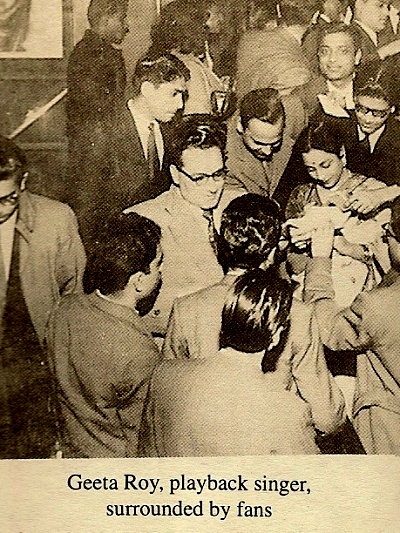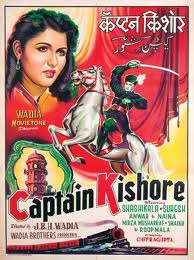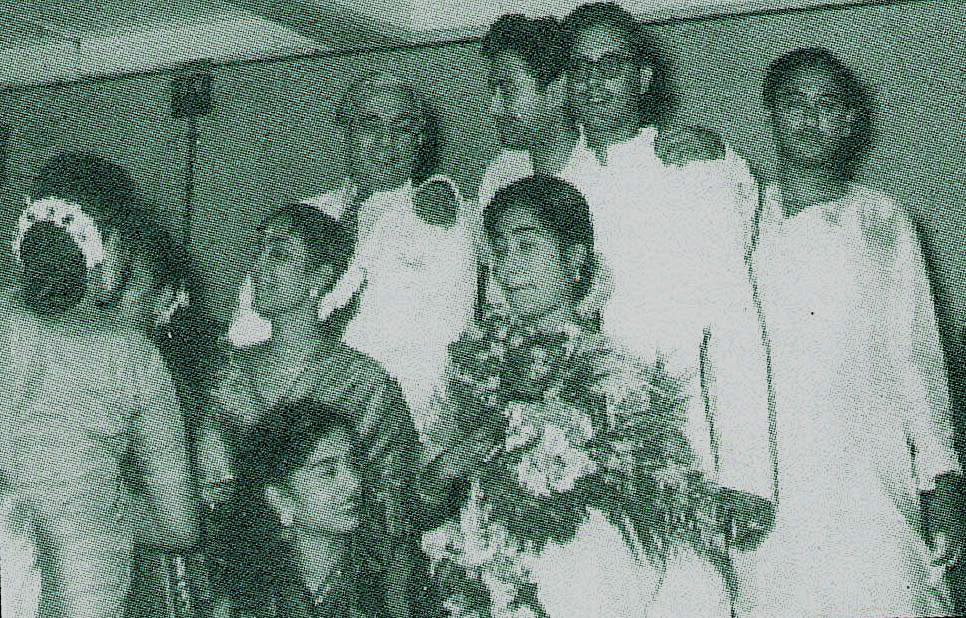
We were fortunate to get in touch with Shri Arjun Kumar Ganguly, nephew of Ashok Kumar ji and Kishore Kumar ji. We are presenting a tribute from him along with some information about the connection of the Gangulys and the Dutts.
It is truly an honor for a simple person like me to write about Geeta ji, who according to me was truly the voice of Bengal. Her voice had the pathos and the soul. Instead of being trying to be technically correct and overtly mechanical, her singing was natural, free and straight from the heart. She was never fettered by technicalities of music, her voice matched the true emotions of the song perfectly. It was nice to know that S.D.Burmanda was pioneer in nurturing her career. She was indeed a great singer and a great human being.
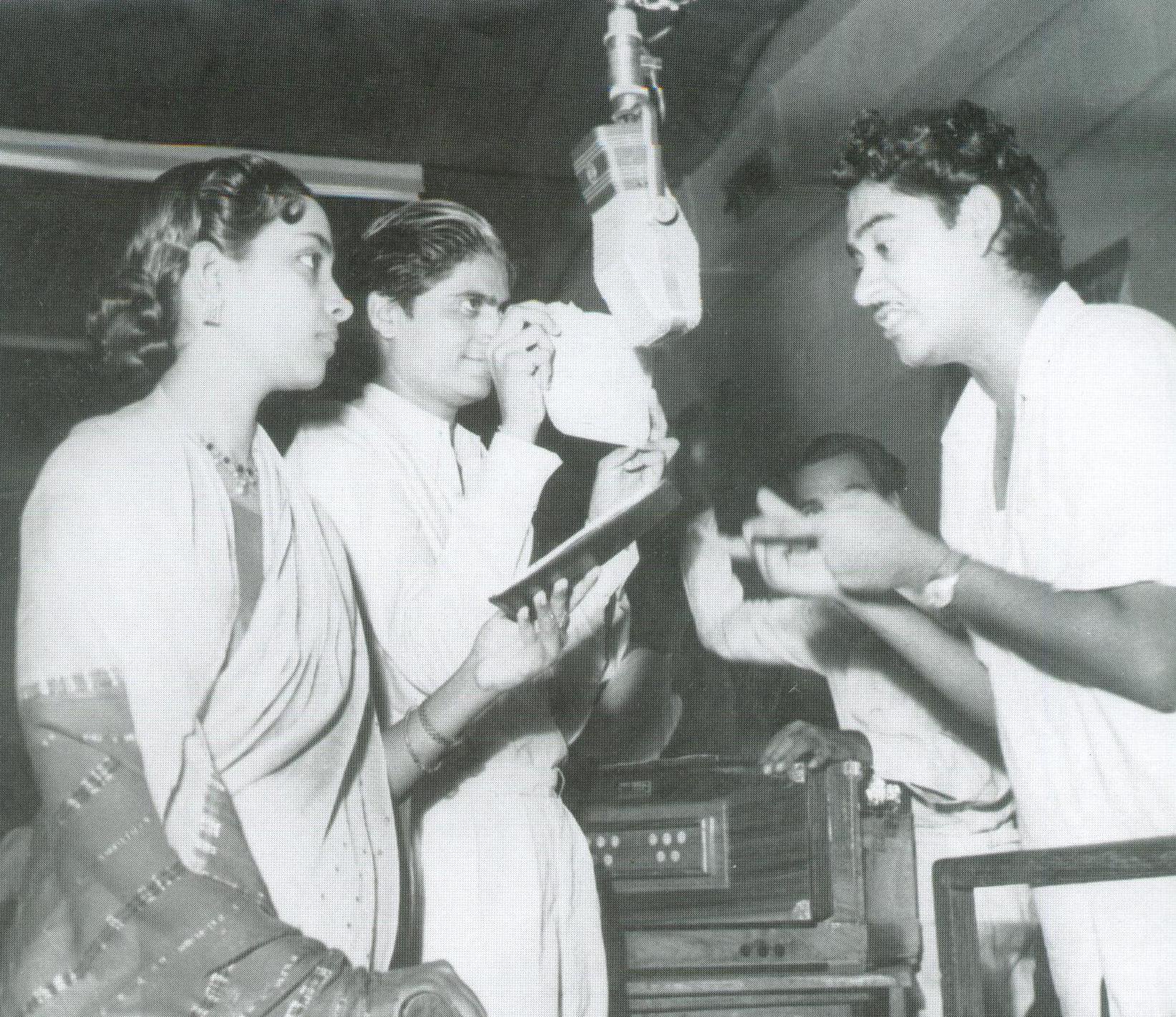
She was the voice of several leading actresses like Meena Kumari, Madhubala, Nargis, Geeta Bali, Mala Sinha, Shyama, Shakila to name a few. She was a nonchalant singer who somehow did not get the due she deserved in Mumbai, possibly for some strange political reasons. Yet, she left her indelible mark in the history of Indian music. There is absolutely no doubt about this. We all are proud of her, truly an effortless singer.
It would be have been great if they both (Kishoreda and Geeta ji) had sung more duets together. Their styles were so much similar and sound so wonderful in the fifteen odd duets they have sung.
It is nice to see that you are using the internet as a medium to keep Geeta ji’s memories alive,may your tribe increase.
Thanks.
Arjun k. Ganguly
Not many know about the Ashok Kumar and Geeta Dutt connection. For the film Padmini (1948), they sang a lovely duet together.
Geeta Dutt, Ashok Kumar : Sapera been bajaayo re : Film – Padmini (1948) MD: Master Ghulam Haider, Lyrics: Wali sahab
Parineeta (1953) was produced by Dadamuni and Geeta ji sung one of the most enchanting songs of her career for this film.
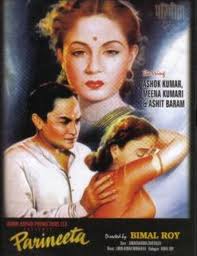
Song – Chaand hain wohi
Film – Parineeta 1953,
MD – Arun Kumar Mukherjee,
Lyricist – Bharat Vyas,
Singer – Geeta Dutt
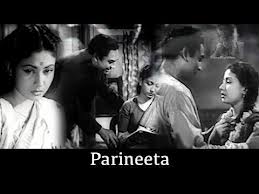
Geeta ji also sang two more songs of this film (Chali radhe rani and Gorey gorey haaton mein) as version songs. She continued to sing many songs for Ashok Kumar starrers like Saajan (1947), Padmini (1948), Mashaal (1950), Nishana (1950), Aadhi Raat (1950), Tamasha (1952), Sholey (1953), Baadbaan (1954), Lakeerein (1954), Bhai Bhai (1956), Bandi (1957), Ustaad (1957), Howrah Bridge (1958), Farishta (1958), Kangan (1959), Hospital (1960).
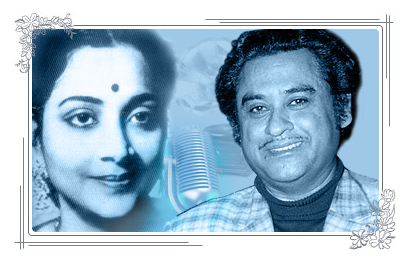
We already have a detailed article on our main website here which describes the connect between Kishore-Geeta as singing stars.
Geeta ji sang with Kishoreda (and a vintage composer/singer Arunkumar Mukherjee sahab) for the Bengali film Samar (1950). The song is full of zeal and energy.
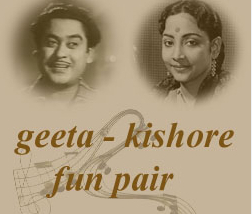
Geeta Dutt, Kishore Kumar, Arunkumar Mukherjee: Sundari lo sundari : Bengali Film – Samar (1950)
Burmanda later on used the same tune again for the film Munimji (1955) for the song “De diya tu le le dil” (sung by Geeta ji).
Eight years later for Kishoreda’s home production Luko Churi (1958), she sang this lovely duet with him.
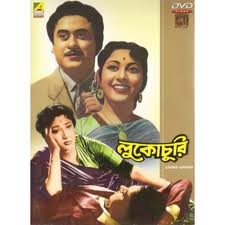
Geeta Dutt, Kishore Kumar – Sudhu Ektu Khani Chawa
Kishoreda’s first wife was Bengali singer and actress Ruma Guha Thakurta aka Ruma Ghosh. Geeta ji sang a lovely song with her.
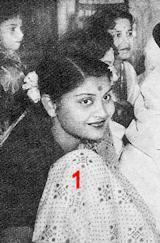
Geeta Dutt, Ruma Guhakarta : Monje amaar kemon kemon kore : Film – Palatak (1963), MD – Hemanta Mukherjee, Lyrics – Mukul Dutta
Kishoreda sang in two movies of Guru Dutt productions- Baazi and Jaal. In the film Jaal, he also sang duet with Geeta ji, which many consider to be one of their best duets. Kishoreda also sang for the shelved movie Gauri (which was to launch Geeta ji as the singing star). So, that is also another angle of Dutt-Ganguly association.
Of course, Geeta ji sang several melodious and lovely songs for Madhubala, second wife of Kishoreda. They were a perfect pair of charming actress and soulful singer.
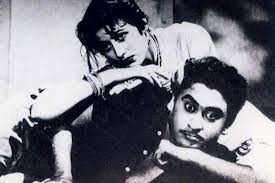
Acknowledgements:
We are grateful to Arjun Kumar ji for paying this tribute on our special request. We are grateful to our dear friend Arghya Dutta for getting us in touch with Arjun ji. Thank you both. You guys have made this day so much more special for us.
